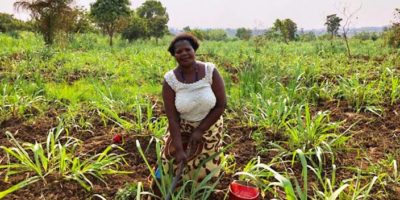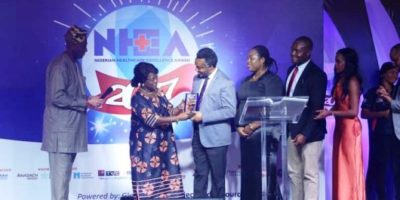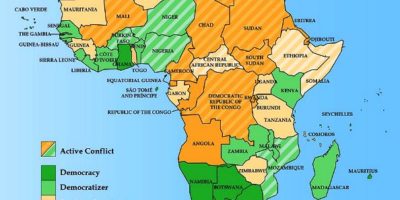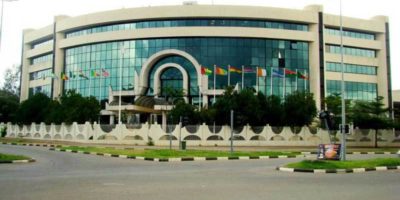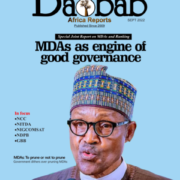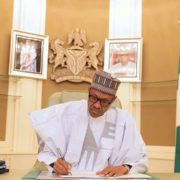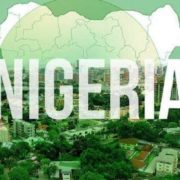By Joe Anuga, PhD
The perspective articulated by Professor Samuel Zalanga in his response to Professor Ango Abdullahi’s views on the need for Northern Nigerian elites to focus on capturing the Presidency of the Nigerian State in 2015 at the next general elections is very interesting. It lifts the discourse into the plain of ideas and issues and is informative and stimulating. It would really be refreshing if it were possible to get the two Professors from Northern Nigeria into the same room for a debate so that both of them can sharpen their ideas upon each other.
The crux of Professor Ango Abdullahi’s view that irked Professor Zalanga is that Northern elites ought to organize their constituencies, unite themselves and guarantee that at the next elections, President Goodluck Jonathan or any other candidate from the Southern part of the country for that matter must not be allowed to win the office of the President of Nigeria. In response Professor Zalanga insists that Northern elites ought to approach politics from an angle that requires that their efforts must entail that they generate visionary ideas to construct a framework to unleash the human potentials within their communities so that these communities can in turn become examples to other underdeveloped areas around the world of the true potentials of human capital.
It may be that Professor Abdullahi too believes that Professor Zalanga’s vision is also shared by him. However, for Professor Abdullahi, the path to achieving any meaningful development in the North is through the capturing of the Presidency of Nigeria by a person from the North. Not so opines Professor Zalanga; the office of the President of Nigeria is incidental to visionary ideas that can propel a community towards generating policies and programmes that can transform human potential into development capital.
For Professor Zalanga identity is fluid and interests groups projecting themselves as representatives for any social groups ought to be severely interrogated. He offers the empirical historical fact that over 50 years after independence Nigeria has been ruled for most of this period by elite coalitions whose top echelons have largely been from the North. The result for Northern Nigeria has been dismal and the fact that the region is the most backward with regards to all indices of development speaks volumes.
He also suggests that elites from the North like Professor Abdullahi do not view most of their fellow Nigerian brothers from the North as equal citizens at all. He suggests that they view them more as subjects to be manipulated and ordered. He argues that from the presumption of numerical superiority, the elites like Professor Abdullahi presume that electoral victory will automatically be theirs. However, the North is not now nor has it ever been monolithic.
There are several cleavages in the North and a person who has been privileged to obtain Western Education, hold high office and own choice property does not embody the majority identity in the North. Since Professor Abdullahi is such a person, his decision to invest significant political energy into a project that seeks the Presidency of Nigeria for an individual who will share most of his own class characteristics is at best unfortunate from the view point of Professor Zalanga. At worst it smacks of feudal arrogance and neglect of the significant potential for good that members of this class can have on the prospects for development of a vast majority of Northerners.
The vast majority of Northerners in Nigeria are Muslims. However, the Muslim community is not monolithic in the North. There are significant ethnic, class and sectarian differences within the Muslim population of Northern Nigeria. Other Northerners are Christians and they too have significant variations within them. A common thread that runs through the North as a region in Nigeria viz-a-viz other regions is its relative backwardness. Nigeria is a backward country but within the country, the North is the most backward region. Professor, Zalanga believes that to address this problem, Northern elites should start from the bottom up; from the level of the individual, the family, the village and other local communities before attempting to push for the Presidency of the Nigerian State. Success in such activity will speak for itself.
He notes the observation of Professor Dudley Seers at a conference in India in 1969 that:
The questions to ask about a country’s development are therefore: What has been happening to poverty? What has been happening to unemployment? What has been happening to inequality? If all three of these have declined from high levels, then beyond doubt this has been a period of development for the country concerned. If one or two of these central problems haven growing worse, especially if all three have, it would be strange to call the result ‘development’ even if per capital income doubled.i
This he suggests should be the primary focus of Northern elites. For him dealing with poverty and underdevelopment should be the crux of politicking in the North. Utilizing the views of Professor Joseph Stigtliz of Columbia University New York in the USA, Professor Zalanga concludes that Northern Nigerian elites generally have failed to improve the lot of the North as region in Nigeria: “No wonder, Professor Josepth Stigtliz of Columbia University, New York, says, it is better to be a cow in Europe statistically speaking, than to be a kind of human being in some Third World countries.ii Yes, a cow in Europe under the European Union common agricultural policy is subsidized more than two dollars per day, while many of the people in Northern Nigeria are making less than a dollar per day.”
Another thing that irks Professor Zalanga is the manipulation of religion by many Northern elites who happen to be Muslim. He does not spare Christian politicians from the charge of manipulating religion but he observes that it is within the Muslim population that this manipulation is most manifested in.
For instance, the decision of a segment of the Muslim elites from the North to push a political agenda that promises that rejecting the historic application of Shariah Law to customary and personal law and replacing it with one that applies Shariah Law to criminal cases also will lead to the solution of all problems in the North as very myopic and irresponsible. He reminds his readers that his Doctoral Dissertation was on comparing the role of ruling elite coalitions in development policy formulation and implementation in Malaysia and Nigeria. He chose to use Malaysia in comparison to Northern Nigeria because its elites also are largely Muslim and their success in lifting a vast majority of Malaysian citizens out of poverty is empirical and is a sharp contrast to the failure of successive regimes from Northern Nigeria. He observes that as the late historian Bala Usman also did that the elites who pushed this agenda display the characteristics of a group that is bereft of ideas on how to create the conditions necessary for development in a modernizing society in contemporary times.
Religion is central to a peoples’ identity but for an elite group to manipulate and politicize it creates a volatility in politics that can make a multi religious society prone to oppression and violence. Professor Zalanga believes that religion in the North ought to be force for progressive change particularly Islam as it was in the days of Sheik Usman Dan Fodio in 1804 and not a force for reactionary negation to legitimate aspirations for development. With regards to the decision of segments of the Northern elite to push for the application of Shariah Law in criminal cases, in a multi religious society like Northern Nigeria, Professor Zalanga puts forward the observation by Sheik Usman Dan Fodio that “[A] kingdom can endure with unbelief; but it cannot endure with injustice”.
He then challenges the Northern elites especially Professor Ango Abdullahi to show how justice for the teeming marginalized population in the North can be reduced to a project by privileged elite groups of Northern origin to seeking the office of the Presidency of Nigeria in 2015; rather than a project that requires all privileged groups from the North to agitate for more transparency, the eradication of corruption and the extension of social services and opportunities at the local level across the North to everyone. Sheik Usman Dan Fodio understood this as the basis for a progressive society; it seems that in his quest to play a politics of identity Professor Samuel Zalanga believes that Professor Ango Abdullahi does not.
I have not given much away yet. The most interesting part is that Professor Zalanga makes valuable suggestions and does not only criticize. This piece is a must read for all Nigerians interested in encountering ideas that can transform our nation.
Joe Anuga is a Political Scientist and lecturer at the University of Jos.
- Dudley Seers. 1969. “The Meaning of Development,” Eleventh World Conference of the Society for International Development, New Delhi. p.3
- See “Where is the World Going, Mr. Stiglitz?” http://firstrunfeatures.com/stiglitzdvd.html. This is a documentary where Professor Stiglitz gave more than five hours of lectures on globalization and its moral and ethical implications for our world today.
- Dudley Seers. 1969. “The Meaning of Development,” Eleventh World Conference of the Society for International Development, New Delhi. p.3
- See “Where is the World Going, Mr. Stiglitz?” http://firstrunfeatures.com/stiglitzdvd.html. This is a documentary where Professor Stiglitz gave more than five hours of lectures on globalization and its moral and ethical implications for our world today.


